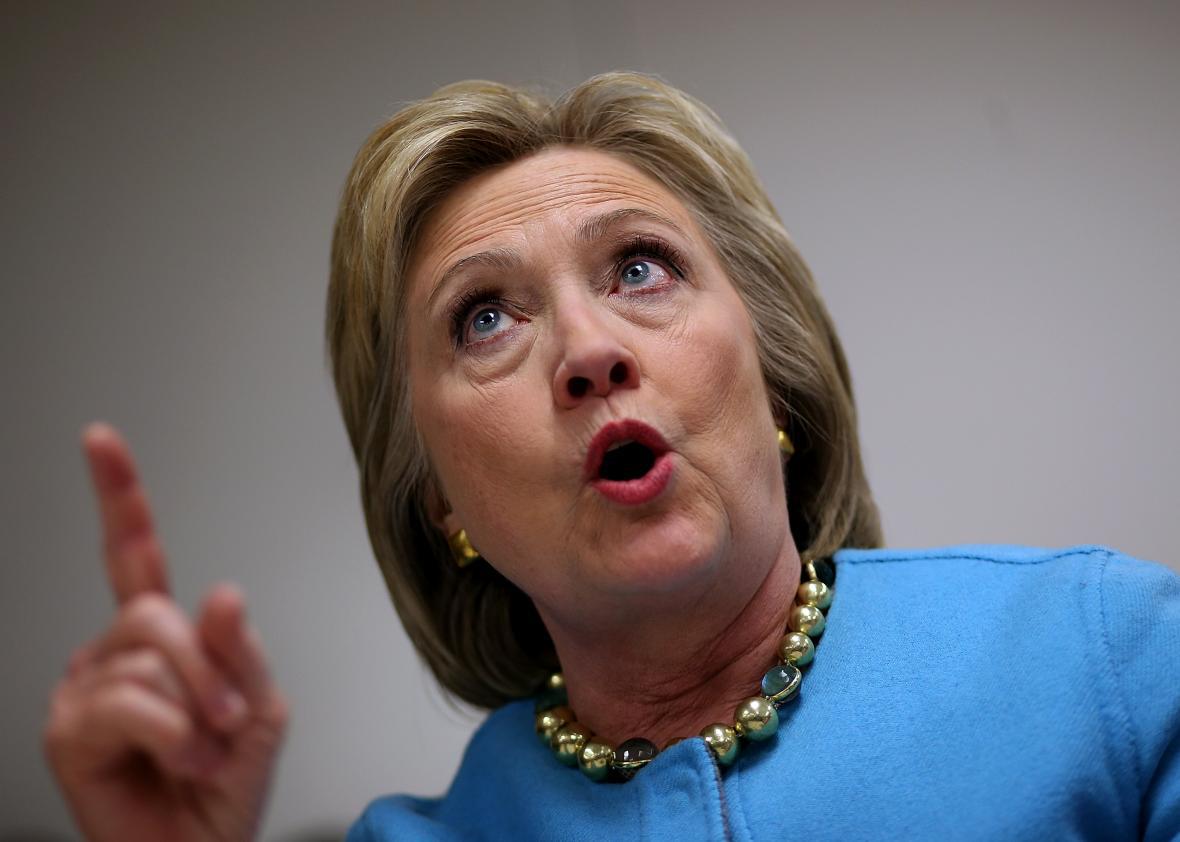During an otherwise strong, albeit not quite spectacular, debate performance on Thursday night, Hillary Clinton gave her latest in a string of weak answers on the topic of money and politics. Asked about the wealthy financiers who are funding her affiliated super PAC, Clinton responded with a more nuanced version of: Priorities USA? Barely know ‘em.
“You’re referring to a super PAC that we don’t coordinate with, that was set up to support President Obama, that has now decided they want to support me,” Hillary said on the PBS stage. “They are the ones who should respond to any questions.” During the exchange that followed, she added: “It’s not my PAC.”
As my colleague Jim Newell noted, that answer is laughable. Yes, Priorities USA was created to help Obama get re-elected in 2012. And yes, technically, the Clinton campaign cannot officially “coordinate” with the group without running afoul of federal election law. But the group—now the largest liberal super PAC in the country—is very much part of Clinton’s efforts to win the White House. It formally aligned itself with Hillary more than a year ago, and is run by a number of Clinton’s longtime loyalists and former aides. Hillary has even personally courted donors herself, as has her campaign chairman, John Podesta, and her husband, Bill Clinton. Priorities USA is very much Hillary’s super PAC despite what she wants you to believe.
In case we needed any more evidence, it came this morning via the Washington Post, which reported that Priorities USA is set to make its “first significant foray into the 2016 primary” in the form of a radio campaign blitz in South Carolina and a “$4.5 million effort to drive early turnout of African American, Latino and female voters in states that hold contests in March.”
The timing of the announcement is both awkward for Hillary (given her answer on stage) and not a moment too soon (given her need to rebound after the first two nominating contests). Recent history suggests that’s a trade-off she’s willing to make.
In completely unrelated news, shortly after Clinton lost New Hampshire by a massive margin this week and shortly before Priorities USA announced it would come to her aid in the primary, Hillary’s campaign circulated a detailed memo outlining her strategy moving forward. A lot of it might sound a wee bit familiar, particularly passages like this one about what one might describe as, um, an effort to drive early turnout of African American, Latino and female voters in states that hold contests in March:
For Hillary Clinton and her campaign, the March states represent an opportunity to build a coalition of support that’s as diverse as the Democratic Party itself. Hispanics and African Americans play a critical role in who we are as a party and who we are as a nation. Many of the most delegate-rich states also have some of the largest minority and urban populations—states like Texas, Georgia, Alabama, Illinois and Florida.
In theory, Clinton cannot tell Priorities USA when, where, and how to spend the millions of dollars it has raised from deep-pocketed donors with her help. What her campaign can do, though, is talk openly about what it would like to see happen and hope someone at the group’s HQ gets the message. It appears it came through loud and clear.
This type of workaround is frustratingly common in modern politics. Still, taken with Clinton’s disingenuous answer at Thursday’s debate, it’s a stark reminder that the current laws are as easy to circumvent as they are to use as political cover.
Previously on the Slatest:
